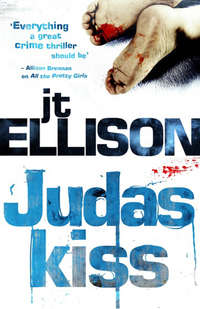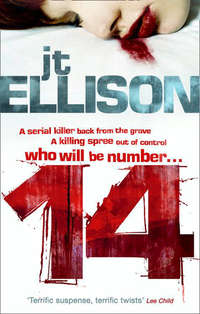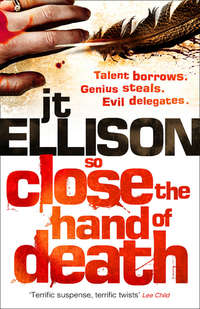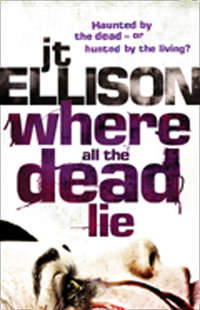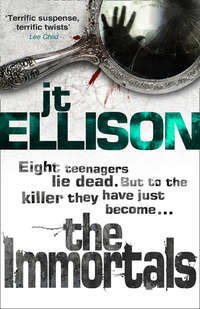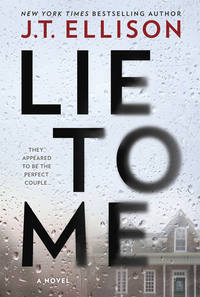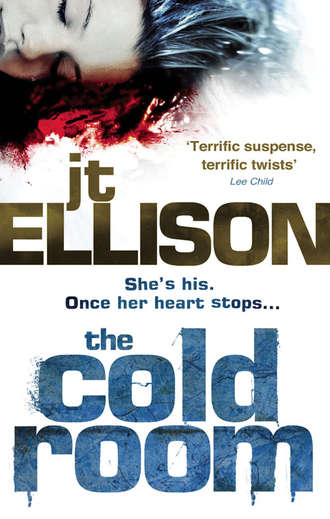
Полная версия
The Cold Room
Taylor stared at him. “Excuse me?”
Elm waved her umbrage away. “You might have mentioned that the FBI agent who crashed my crime scene last night was your fiancé.”
“That has no bearing on my job. Dr. Baldwin is the leading expert in the field of criminal profiling, and has worked cases with Metro in the past. With great success, I might add.”
“Yes, I heard that. Don’t get so defensive with me. I’m willing to let him help with this one, so long as he doesn’t get in my way. So let’s just put last night behind us and start fresh, shall we?”
He stuck a hand out across the desk.
“Morty Elm. I’m from New Orleans, I worked with the chief down there and was very happy to come onboard when this unfortunate situation warranted your, well, let’s just call it disciplining, shall we?”
Before she had a chance to speak, he continued.
“I’d like to establish a few ground rules. I like to be kept informed of everything my detectives are doing, so you’ll report in regularly. I prefer to read your updates, so if you’d be kind enough to turn in a detailed sheet every evening of your day’s accomplishments, that will make my life grand. I’d also like a full rundown of where you stand with each of your cases, and your plans for solving them.
“I run a tight ship, so I expect you to be at your desk by eight, and to adhere to the dress code. Jeans are not suitable for my detectives. You will sign in and sign out every time you leave the office. In addition, you will find a listing of what is appropriate and what is not on your desk. I spoke with Detective McKenzie this morning, he seems like a fine young man. You have considerably more experience than he, so I trust you’ll be comfortable mentoring the detective, teaching him the ropes.”
“Of course.”
“Then we understand each other. No more surprises at crime scenes, Detective. That’s all I have for you right now. I’ll expect that status report by five. You may go.”
She struggled to reconcile the man with his words. Smiling and friendly this morning, making reasonable statements, yet still lobbing comments full of allusion. The shot across the bow regarding the videotapes was uncalled for. She could just imagine Elm and Delores Norris in the Oompa’s office, lights off, watching Taylor in all her glory with her dead ex-lover. She didn’t know who to be more furious at—Norris, Elm, or David Martin, for putting her in the situation in the first place. If he weren’t already dead, she’d like to strangle him.
Last month, after videotapes of Martin and Taylor having sex surfaced on a pay-as-you-go Web site that featured amateur, unwillingly taped pornography, she’d broken a few rules to solve the case. She was being summarily disciplined for her actions defending herself.
Elm’s dictates were ridiculous. Written plans for solving her cases? It would take two weeks to write out her assumptions and thoughts on the forty or so open cases she’d caught over the past few weeks. And establishing the ground rules was one thing, but dismissing her without an update on the most current case? Sloppy. Just like she suspected, Elm wasn’t there to be a cop. He was going to be an administrator. At least he wasn’t fighting her about Baldwin.
She gathered herself. “You don’t want—”
Elm shook his head vehemently.
“I said you may go. I have other duties to accomplish this morning.” He gave her a brief, feral smile and nodded at the door.
She stood, biting her lip, holding back the invectives she’d prefer to spew.
“Close the door on your way out, please,” he said.
She pulled the door shut a little harder than necessary and walked to her desk. There was a sheet on it, color coded, with starred items. The appropriateness list, she assumed. She balled it into a wad and tossed it into the trash unread.
She sat down hard, yanked her ponytail holder out, ran her hands through her hair, stopping for a moment to massage her temples. Elm was certifiable. One thing at a time, she told herself. Focus. Focus on the case.
If she wanted her old job back, solving this case and showing his incompetence was paramount.
She put her hair back up, took a deep breath, then pulled out a reporter’s notebook and started making herself a list. There were several items that needed to be accomplished today, and she wasn’t going to let King Toad get in her way.
The list was straightforward. Need to talk to neighbor again, need to talk to home owner, need to revisit the case in Manchester, file the ViCAP updates, check iAFIS for a fingerprint match and check on that palm print, gather crime-scene reports from all of the patrol officers, create the murder book, report in to Page. As she wrote, her mind slowly shifted away from Elm and onto their unidentified victim.
“You’re lost in thought.”
Taylor jumped. A.D.A. Page was standing by her left elbow. She hadn’t heard the woman slip in.
“Lost is the operative word in that sentence. How are you, Julia?”
“Curious why you didn’t call me the second you woke up this morning. The Love Hill case? You know I love a good serial killing in the morning.”
“Jesus, don’t say that. Speaking it aloud might make it come true.” Taylor showed her the list she’d been drawing up. “I was just making some notes on what I’m doing on the case today. You’re practically at the top of my list. See?”
“Goodie. So fill me in now instead of later.”
“I don’t have much to go on just yet. We’ve got some little bits of trace evidence, lifted some prints, but until the post is done, I won’t know more.”
“The press is claiming it’s the beginning of a serial. They’re calling him the Conductor. I want your honest assessment. Do you think this is someone who might do this again?”
Taylor noticed that Page’s right eye had a blue fleck deep in the brown. She’d known the A.D.A. for years, how had she missed that? She was avoiding the answer. Page crossed her arms, preparing herself as if she already knew what Taylor was about to say.
“Yes,” Taylor answered.
Page’s chestnut curls bounced as she leaned against Taylor’s desk. She was a small woman—leaning, she was eye level with Taylor sitting. She always made Taylor feel huge.
“Seriously?”
“Seriously. I’m going to run a ViCAP search here after the post, see if we can’t find something similar out there. This was pretty sophisticated. Either he’s trying to get media attention or he wants us to see how brilliant he is. But the Conductor. Where did they get the name from?”
Page gestured over her shoulder at Elm’s office. “The new guy told them there was a CD playing classical music.”
Taylor shook her head, pinched her fingers across the bridge of her nose. Damn it. She wanted that detail kept quiet. “You have to be kidding,” she mumbled.
“Nope.” She leaned a little closer to Taylor. “Are you doing okay? I know this is hard.”
Taylor sat back in the chair and sighed deeply. “You’re sweet to ask. I’m fine. This is just a hiccup. Besides, I like getting my hands dirty. I spent a long time on this side of the desk, it’s a bit like coming home. I always did love the investigative side of the job, it was the administrative crap that was no fun. So this is the best of all possible worlds right now—I get to follow leads, do the legwork, and hopefully solve this case quickly. It’s why I became a cop in the first place, you know? Right the wrongs, and all that.”
Page stared at her for a moment, then patted Taylor’s shoulder. “You’re a gracious woman, Taylor. I’ll see you later, I’ve got to get to court.”
“Put away the bad guys, Julia. We’re all counting on you.”
“Bah,” Page said, but grinned.
As she left, Taylor glanced at her watch—it was 9:30 a.m. Perfect timing. It would take her fifteen minutes to get to Forensic Medical. She closed the notebook, stuck it in her back pocket, and started from the room. She wasn’t lying to Page; she did have a sense of nostalgia and adventure about all this. Even when she was the lieutenant, she liked to be in the trenches with her team, guiding and directing from the field, instead of from her office.
And truth be told, she’d been a stellar detective, which was a bane and a curse. Do the job too well and you get promoted, with all the attendant headaches. She couldn’t deny that she missed having command of the murder squad, but she’d live. She was still a cop, with a job to do.
She negotiated the rabbit warren to the door, saw the new sign-out whiteboard nailed to the wall to the left of the door frame. She balked for a moment, then moved her magnet to “Out of Office,” wrote “Forensic Medical” in the column next to her neatly printed name and walked out the door. She’d learned one thing during her thirteen years on the force. Sometimes, you pick your battles.
Seven
Gavin had a new voice mail when he returned to his studio this beautiful sunny morning. He listened to it before he shed the messenger bag slung around his shoulders. It was from the primary on his latest job. Her name was Wilhelmina, and she paid well for his services.
“Gavin, the new photos are in. Would you look at them and see what fits the Frist exhibit catalog requirements? The deadline is Tuesday, and we certainly don’t want to be late. Oh, and thank you.”
The thank-you was an afterthought. Wasn’t that always the way?
He set his breakfast—a whole-grain bagel with organic peanut butter and a ripe banana—on his desk and started his computer. The messenger bag went on the chair next to his desk, the one covered in industrial orange-and-brown tweed. All he could afford at the time he bought it, he was pleasantly surprised to see it was more handsome than it looked online. His desk was made of solid oak, a plank, thick and sturdy, across two sawhorses. His chair—sleek, ergonomic black leather—was his prize. He could drop the arms when he needed to work at the drafting table in the corner, under the plate-glass window that overlooked the brick of the building next door.
The computer took exactly three minutes to boot up. He took the time to nibble on the banana and look at the stains of pigeon shit on the exterior ledge above his window. Amazing how they landed in such interesting shapes. It was the velocity from their flight, he knew, but still. He wondered if Jackson Pollock had been inspired by something so simple, so organic. But even an artist of his caliber couldn’t reproduce that randomness.
A chime let him know his computer was booted and ready. He quickly located the e-mail from the Strozzi Palace museum in Florence. He read the brief message, the English broken but passable.
Enclosed please find pictures requested by you for the exhibit to start 11 June.
Grazie mille.
He clicked Download All and waited, watching his screen fill with shot after shot of gorgeous pictures. The Strozzi was a beautiful building, a former palace, home to the noble Strozzi family—sworn enemies of the Medicis. It was a geographical square block of stone and columns and open courtyard. He dreamed of going there one day. To see Italy, walk among the history, the beauty, gaze for hours upon the priceless artwork …
He couldn’t help himself. He gazed at the Strozzi pictures, strolling through time, reveling in the detail, living through the luscious artistry of the photographer. The short angles, the presentation, the perfect balance of light to show off the art were masterful. The paintings breathed colors into his screen; the sculptures so visceral that it seemed the edge of a bicep or the length of a thigh could be stroked, the flesh alive under the finger.
The photographer on this shoot was truly superb. Gavin couldn’t have done better himself. He played a game with himself. There were only three museum collection photographers he knew who were this talented.
If he were to guess. Gavin went through the photos again slowly, deliberately ignoring the line at the very bottom of the page that would give him the answer. The edging was unique, the angles for the light dramatic. It had to be the work of Tommaso.
That was his only name. Tommaso was reputed to be a difficult man to work with, but one of the most brilliant still photographers in the industry. A rock star in the art world.
Gavin snuck a look. He was right. The pictures were by Tommaso. A bloom of happiness spread throughout his stomach. He knew his stuff, that was for sure.
He shot a message back to Wilhelmina, acknowledging he’d received the photos and would have the catalog press-ready by the deadline. Then he started the laborious process of designing.
Gavin enjoyed his job. He was a freelance graphic designer by trade, and often did work for the printers in downtown Nashville. He did contract work for ad agencies, for sports teams, for all of the cultural corporations of Nashville. But the art photos were his true love.
His studio was off Broadway, way off Broadway, in a small storefront that butted up against the alley for a Thai restaurant. The scent of cumin and rotting cabbage was just bearable. As was the price of the shop. He couldn’t work for someone directly. It was better this way.
His desired vocation was photography, but he’d found it difficult to make a living with his camera. He had skills, but his eye was no match for someone like Tommaso. So he’d started his pre-press business, typesetting catalogs and developing Web sites. His work was sought after, and he quickly rose to prominence. He was known as the quirky designer who wouldn’t talk to clients, only took orders online, didn’t return phone calls but sent plenty of e-mails and never, ever missed a deadline. He didn’t like to talk to people if he could avoid it. There was no point. He just didn’t have that much to say. He couldn’t relate. To be honest, there was very little that couldn’t be expressed in an e-mail.
He was good at his job, and people recognized his talents. In a few short years, he had developed a wonderful niche that made him money and allowed him to revel in art. He typeset museum catalogs. He had started small and worked his way in through a side job designing museum Web sites. Once he was established, he did exhibition catalogs and permanent collection catalogs from all over the country. A couple of years ago, he’d gotten big enough to branch into catalogue raisonnés, the monographs detailing the life’s work of a particular artist. He’d done a lovely job with a Picasso monograph last year, and was bidding to do several more.
That reminded him, he needed to look at the status for the Millais. He scanned his e-mail, but there was nothing from the Tate Britain Gallery in London. Damn. John Everett Millais was one of his favorites, he wanted to win that job.
Nothing to worry about. His current job for Wilhelmina was a dream come true. At the moment, the Frist Center had arranged for a once-in-a-lifetime exhibit. A number of paintings from one of the art capitals of the world, Florence, Italy, were going to come to Nashville, and Gavin had been hired to do the catalogs. Which meant oodles of stunningly beautiful pictures from three of the most famous art galleries in the world, the Uffizi Gallery, the Pitti Palace and the Strozzi.
He forced his attention back to the Strozzi pictures, and started in. It didn’t take long to see that one of the photographs hadn’t downloaded properly. Gavin felt it was divine intervention. He could send an e-mail to Wilhelmina, ask her to contact the photographer and ask for him to resend the shot. Or … Gavin felt his heart beat just a bit harder. Why not? He’d always been an admirer of Tommaso, there was no reason why he couldn’t contact him directly. Was there? Granted, the man was exceedingly private—to the point where he refused any interview that wanted a photograph of him. Gavin wondered if he were disfigured in some way. He could understand the desire to let your work speak for you.
Never one to make a move without thinking it through thoroughly first, Gavin sat back in his chair. If he contacted Tommaso, there would be the slightest chance of mentioning his own work. It might open a few more doors; God knew the Italian worked everywhere. Tommaso’s reputation was well-known all over the world. It might give Gavin a chance to explore past Nashville. They could become friends.
He came back down to earth with a sigh. Like that would ever happen. His friends were all dungeon masters.
But before he lost his nerve, he filled out the contact information on the e-mail and sent a quick note to Tommaso’s address.
Dear Tommaso,
I’m a great admirer of your work.
The catalog photographs from the Strozzi collection are utterly superb. Unfortunately, JPEG 10334 did not come through properly. Would you please resend the original shot?
Thank you so much.
G. Adler
Gavin hit send and sat back, breathing deeply. Should he have said Ciao? Or would that have been stupid? What had come over him? Was it too late? Could he undo the e-mail? What was he thinking?
He ran his hands across his scalp, vaguely noting that his hair was growing back. He’d have to shave again soon. No, there was nothing to be done about the e-mail now. As his mother always said, “Don’t do something you might regret, Gavin.” He didn’t really regret it. Chances were someone as big as Tommaso had an assistant who looked at the e-mail, and the message hadn’t come from him directly, anyway.
He forced the action from his mind, vowing to think about it no more. The rest of the photos were fine, he could work around the missing image for now.
He worked quietly, humming under his breath on occasion, placing photos here and there, getting the most pleasing backgrounds, choosing a variety of accent colors and washes, until he felt comfortable that his settings would showcase the photographs perfectly. This was another nice thing about working for yourself—you could spend an afternoon in contemplation of what shades really did show off the Strozzi paintings, keeping in mind the art that might be coming in from the Pitti and the Uffizi. It was a delicate balance. He was always struck by the fragility of the ancient art pieces. Combined with the robust options the computer provided—Old World Masters and cutting-edge technologies made beautiful bedfellows.
All the information for each painting had to correspond and fit onto the pages of the catalogs: its history, dates and provenance, the artist’s background, the artist’s influences, who donated the cash to allow the loan to take place, every conceivable trivia tidbit was sandwiched into the pages. Small public relations kits needed to be made, and special upgraded catalogs designed for the “Friends of the Frist” to take home from the private opening. And then the catalogs would be reproduced for the Web sites and the gallery showings.
There was plenty of work to be done. Plenty to keep his mind occupied, away from the joy that awaited him at home. That was Gavin’s greatest talent. He could focus. Put away one facet of his being to explore another. He’d been compartmentalizing for years.
Eight
Being a member of the Behavioral Analysis Unit meant being on call 24/7, so when Baldwin was working an actual case, there were few breaks and many sleepless nights. Part of it was the nature of the job, but it was also his fault. He couldn’t turn it off. Couldn’t walk away. And that was dangerous. He thought he’d been successful in pulling away a bit over the past year, setting up a home and life in Nashville, only consulting on the biggest of cases. But lately, he found himself being dragged back in, bit by bit.
The problem was, he loved it. He hated the means that brought him the cases, despised what the men and women he hunted did, was constantly amazed at the depths of human cruelty. But as a student of psychology, finding out why some sociopaths choose to become serial killers had become his vocation. His art.
The call he’d been waiting for came at 9:10 a.m. He received the news, said thank you, and set the phone back in its cradle.
The phone call confirmed it. They had a match. The same man had killed in Florence and London. He paced the house, thinking. His mind was in overdrive. Il Macellaio, the Italian serial killer who’d been operating for ten years, had finally made a huge tactical mistake.
Baldwin was tired. So very tired, and so very jazzed. Now they had the confirmation that Il Macellaio had moved his hunting grounds to London three months prior. He’d claimed three victims, all slightly out of his usual victim profile. These were working girls. In Florence, he preyed on students, and he was careful to choose girls who would go unnoticed for a time if they disappeared. Mousy, shy girls who didn’t have a lot of friends.
At the beginning Baldwin assumed he flattered them, seduced them, got them to leave their lives and go home with him. He would hold them for weeks, slowly starving them, until they were so sluggish that fighting him wasn’t an option. Once they died, he had sex with their bodies, then washed them and left them posed, with a print of the painting he was mocking nearby.
Necrosadism wasn’t something he came across every day, though it did happen. The very act of murdering a woman to have sex with her corpse was an extreme variation of necrophilia, which many times was characterized more by fantasies of having sex with dead women than actually going through with it.
But there was something out there for every killer to devolve into, and Il Macellaio was a true necrosadist. He’d started by starving the girls, but quickly moved on to strangulation. Even then, in his later cases, the girls were given zero nourishment, no water at all, so they were weakened, couldn’t put up a fight.
Il Macellaio’s desire was playing havoc with his self-control. In his early days, he wasn’t rushed, was able to sate his needs with a kill a year. Now, he’d gotten a taste for dead flesh, and he hastened the deaths of his victims along so he could have more time with their bodies. It was good news, in a way. When a serial killer’s self-control slipped, you had a chance to catch him.
Baldwin turned back to the files on the table in front of him. The new murders in London, with the prostitutes as victims, shook him. Geographically, serial killers tend to stay in certain areas. To jump countries, well, that was a huge step.
If he had actually crossed to America as well, they’d catch him. Baldwin flipped through the pictures from the Nashville crime scene. So very familiar. The posing, the emaciated body. The one huge difference between the London and Florence killings and this possible American murder was the race of the victim.
All the overseas victims were white. This one was black. And that was enough to give Baldwin serious pause. For a sophisticated, organized serial, a well-defined signature can evolve over time, getting more specific, more exact. Killing methods are perfected, the suspect learns from each crime scene. He figures out what works and what doesn’t, what turns him on and what doesn’t, and adapts. Just like any predator.
But killers didn’t usually start with one race then switch to another. If he’d been equal opportunity from the beginning … but Il Macellaio hadn’t. He’d exclusively killed white women. At least that they knew of.
Baldwin sighed deeply. He sent an e-mail to the Macellaio task force, asking them to pull any unsolved murders of young black women in Florence or London over the past fifteen years. The carabinieri kept meticulous records; the search shouldn’t take too long. The Metropolitan Police at New Scotland Yard were fully automated. They could have their answers by end of day tomorrow.
He was afraid of what those answers might be.
His phone rang, the caller ID showing a London exchange. They’d been faster than he expected.
“This is John Baldwin,” he answered.
A British voice, cultured and aristocratic, said, “Dr. Baldwin? Detective Inspector James Highsmythe, Metropolitan Police. Have you seen the results of the tests you ordered?”


